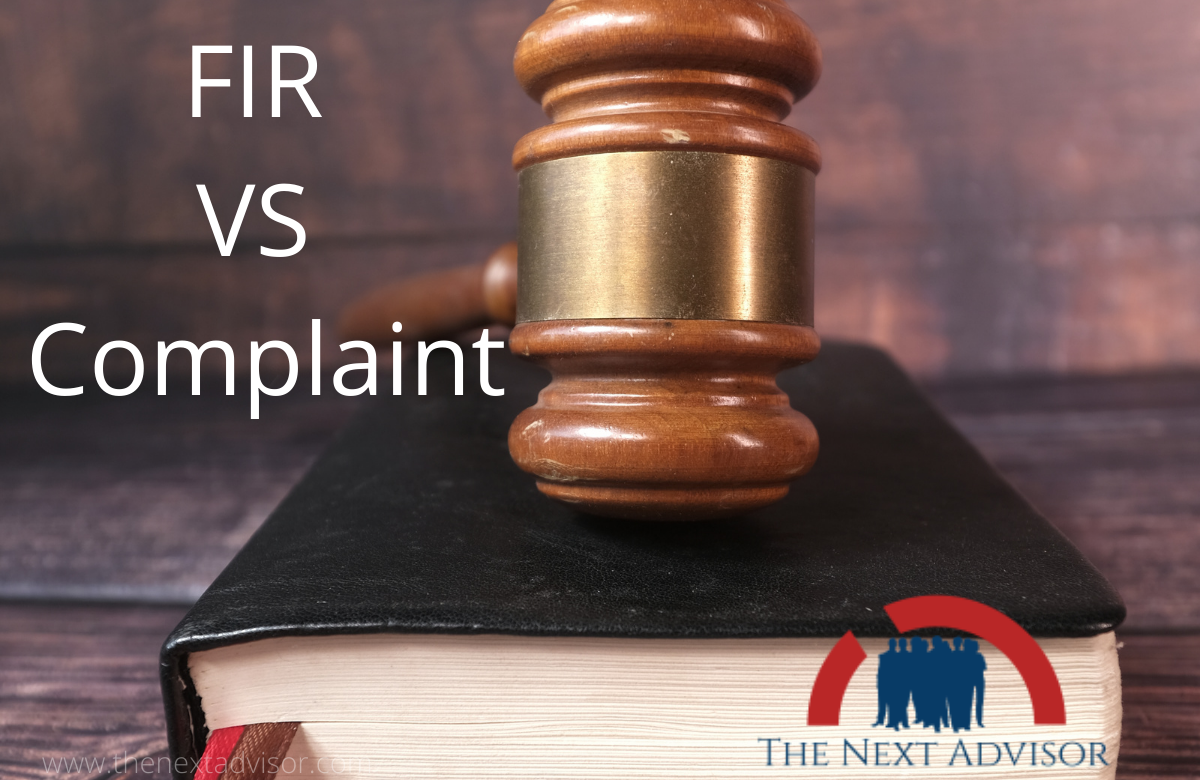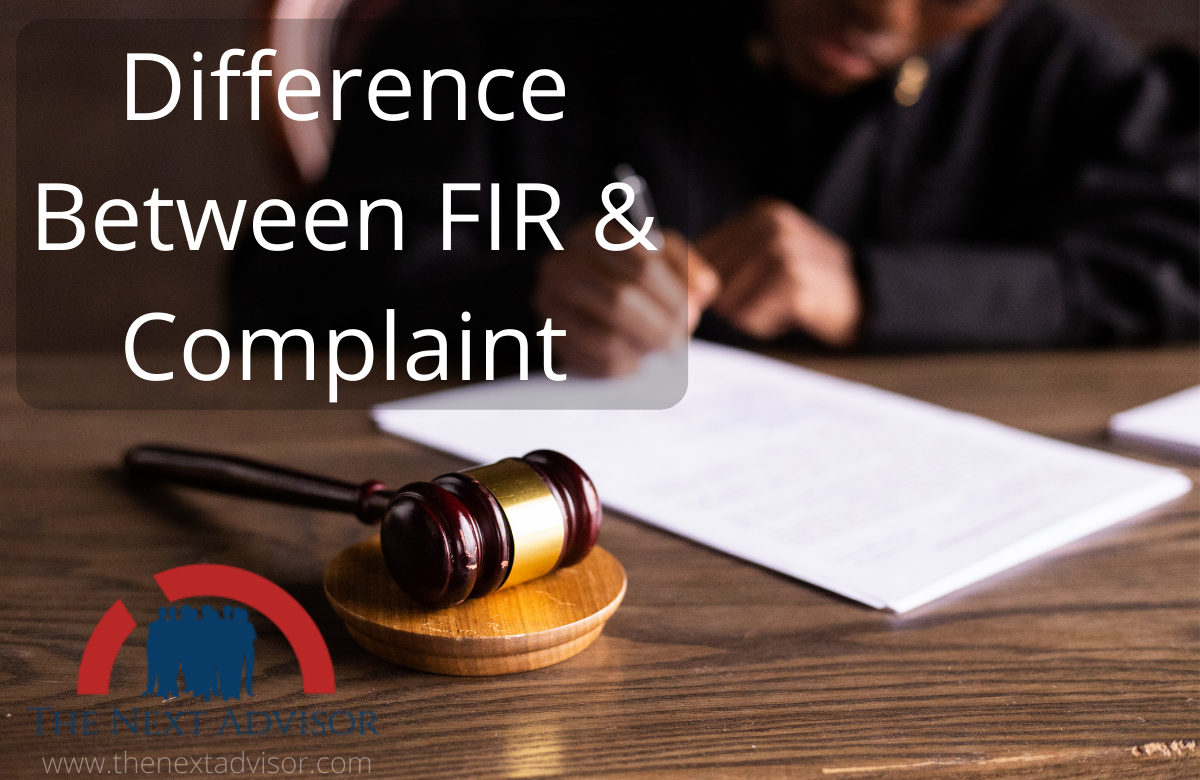I am going to tell you, “what is the difference between complaint and FIR.” And when I will tell you about complaints and FIR, I will also introduce you to the word police report. Sometimes common people consider Police reports and FIRs the same. But let me tell you police report means the report sends to the magistrate by the officer-in-charge of the particular police station. Its definition is given in section 2(R) of the CrPC. And the police report is sent Under Section 173 of CRPC.
What is FIR? The first information about the commission of the crime. The first information related to the cognizable offenses is known as FIR. In Hindi FIR is known as Pratham Suchana Prativedan. First Information Report is the full form of FIR.
What is the word for complaint in Hindi? the word for complaint in Hindi is Sikayat and the word for complaint in Urdu is Parivad. Complaint file before the concerned Magistrate. The definition of Complaint is given in section 2 (D ) of CrPC.And How to file a complaint is given from Section 200 CrPc.

FIR VS Complaint
What is the main difference between a complaint and FIR?
The complaint will file before the concerned Magistrate. FIR is file Before Police, Whose definition is not given anywhere in our CrPC. How to file FIR is given in Section 154 of CrPc. That whenever any person has any knowledge of the commission of an offense or occurrence of an offence, and this offense is cognizable (an offence in which a police officer has the authority to make an arrest without a warrant and to start an investigation with or without the permission of a court), then that person can go to Police Station and can register FIR. The complaint is made to the Magistrate and the Magistrate accepts the Complaints. The complaint may be related to any cognizable and non-cognizable offences. But the FIR will be related only to the cognizable offences.
Investigation of FIR and Complaints
What happens in FIR? ( about the investigation )
When the FIR is filed, the police have the authority to start the investigation without the permission of the magistrate. And they can follow the procedure which is given in Section 156 CrPc. Police can follow the provisions which are given in Under Section 156 of CrPc. After the filing of FIR, the police can start an investigation. Police may arrest any person according to Section 41 of CrPc against whom FIR is registered, or by whom the offense is known to have been committed.
What happens in the complaint? ( about the investigation )
In the complaint, magistrates will first take the cognizance of the Complaint and as Magistrate feels, the magistrate will order like that. Whatever Warrants and Summons have to be issued in this regard, he will issue. Or Magistrate will order the police for investigation under section 154 CrPC.
One more thing you should know about the complaint is that like a person went to the magistrate and after going to the magistrate he complained about the non-cognizable offence but the complaint which is there, it was about a cognizable /offence crime. And the police were told that the matter is very big, but after investigation, the police came to know that the matter is not what it was really written/mention in the complaint by the complainant. The case is very small and non-cognizable. Will it be understood as if it was told in the complaint that the matter was made of law, but after investigation, it was found that the crime is non-cognizable and the police have no right to arrest the person.
Then the police send a report to the magistrate Under Section 173 of CrPc. And in the report, the police tell the magistrate that this matter is related to a non-cognizable offence. it has come to the fore in our report. So the report that the police send to the magistrate is considered a complaint. and in such a case, the police itself is considered to be the Respondent.

























